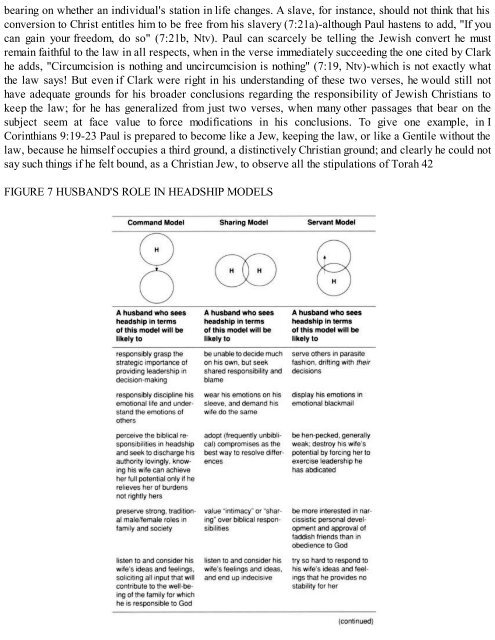Exegetical Fallacies - D. A. Carson
Exegetical Fallacies - D. A. Carson
Exegetical Fallacies - D. A. Carson
You also want an ePaper? Increase the reach of your titles
YUMPU automatically turns print PDFs into web optimized ePapers that Google loves.
earing on whether an individual's station in life changes. A slave, for instance, should not think that his<br />
conversion to Christ entitles him to be free from his slavery (7:21a)-although Paul hastens to add, "If you<br />
can gain your freedom, do so" (7:21b, Ntv). Paul can scarcely be telling the Jewish convert he must<br />
remain faithful to the law in all respects, when in the verse immediately succeeding the one cited by Clark<br />
he adds, "Circumcision is nothing and uncircumcision is nothing" (7:19, Ntv)-which is not exactly what<br />
the law says! But even if Clark were right in his understanding of these two verses, he would still not<br />
have adequate grounds for his broader conclusions regarding the responsibility of Jewish Christians to<br />
keep the law; for he has generalized from just two verses, when many other passages that bear on the<br />
subject seem at face value to force modifications in his conclusions. To give one example, in I<br />
Corinthians 9:19-23 Paul is prepared to become like a Jew, keeping the law, or like a Gentile without the<br />
law, because he himself occupies a third ground, a distinctively Christian ground; and clearly he could not<br />
say such things if he felt bound, as a Christian Jew, to observe all the stipulations of Torah 42<br />
FIGURE 7 HUSBAND'S ROLE IN HEADSHIP MODELS



